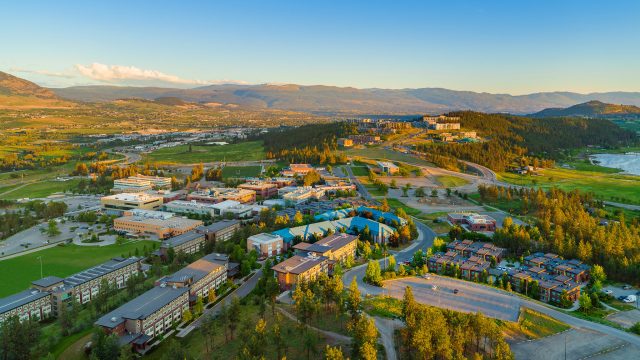Make sense of our transforming world by studying dynamic historical patterns of political, economic, and social change. At UBC, you’ll gain the tools needed to analyze and form opinions based on multiple sources relating to the past, preparing you for a career in the present and future.
This program is also offered at UBC's Vancouver Campus
Find out moreWhy this program?
- Earn a UBC degree respected by employers around the globe.
- Build a broad foundation and acquire the skills to pursue careers in government, law, education, business, and media.
- Apply historical principles and skills outside of the classroom by conducting fieldwork, working for a museum, or completing an internship.
Program information
Send details- Campus: Okanagan
- Faculty: Irving K. Barber Faculty of Arts and Social Sciences
- Degree: Bachelor of Arts
- Length 4 yrs
- Co-op Yes
- Honours Yes
Understand the present by studying the past. Read broadly, think analytically, write effectively, and inform policy. Historians examine evidence and arguments to understand the relationship between ideas and actions, and individuals and social institutions.
The History program prepares you for graduate and professional programs, and to pursue careers in a wide range of areas.
Experiential learning and research
Embrace experiential learning. Assist with a research project on labour migration in Cold War Europe, the history of science and technology, or social movements in the global south—just some of the topics award-winning UBC historians are exploring.
In your fourth year at UBC Okanagan, you have the option of completing directed studies, where you will undertake a supervised investigation of an assigned topic in history, culminating in a major term paper.
The Irving K. Barber Faculty of Arts and Social Sciences holds an annual undergraduate research conference on UBC’s Okanagan campus to showcase student research projects.
Campus features
The History/Sociology Speaker Series pairs UBC with the Okanagan Regional Library to bring in distinguished guests to share their knowledge with students, colleagues, and the community.
The History Course Union is a great club for you to branch out, network,and meet people with similar interests.
Life at UBC's Okanagan campus
UBC's Okanagan campus is renowned for its research opportunities and access to professors. On this tight-knit campus, you’ll be able to work closely with award-winning faculty who are exploring a diverse range of areas such as “post-feminist” Argentine women’s cinema and the Second Industrial Revolution.
Find out moreYour future
History is an area of study that gives you access to multiple rewarding career paths, not just a job. You will be well positioned to thrive in a variety of organizations, and able to pursue careers as diverse as diplomat, lawyer, policy analyst, and archivist.
Program requirements
English-language requirements
English is the language of instruction at UBC. All prospective students must demonstrate English-language competency prior to admission. There are numerous ways to meet the English Language Admission Standard.
General admission requirements
IB Diploma Programme
- Completed IB Diploma, including at least three Higher Level courses.
IB Certificate Courses
- IB Certificate courses (Standard and Higher Level) may be used in an admissions average if you are graduating from a recognized high school curriculum that can be used as your basis of admission.
- IB Math Applications and Interpretations SL, or IB Math Studies, do not satisfy the math requirement for admission to UBC’s science-based programs, the Faculty of Management, the UBC Sauder School of Business, or the Vancouver School of Economics.
Degree-specific requirements: Arts
- No specific courses required beyond those needed for general admission
Related courses
The following subject categories are particularly relevant for this degree. Consider taking courses in these areas in your junior year and senior year.
- Language Arts
- Mathematics and Computation
- Second Languages
- Social Studies
- Visual and Performing Arts
